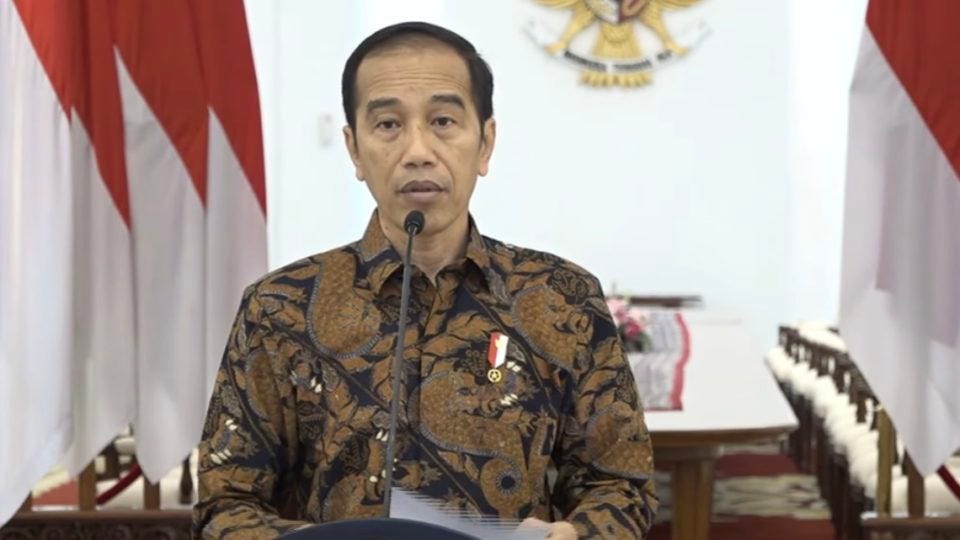Hello Coconauts!
It’s almost Ramadan in Indonesia and this year will look very different from Ramadan commemorations of the past. Amid the COVID-19 outbreak, many aspects of celebrations will change beginning with mudik — the practice of heading home to celebrate with family and community.
Stick with us here and on Twitter as well as at Coconuts Jakarta and Coconuts Bali to keep up to date with the latest.
Join us for our regular Friday in-depth look by becoming a premium member here:
Stay safe out there and look out for each other,
Erin Cook

Health authorities reported 375 new confirmed cases and an additional 26 deaths, bringing the totals to 7,135 and 842 deaths. With the country heading into the Muslim fasting month, fears of wider community transmission have prompted sweeping policies.
The consistent growth has forced the government to take the unprecedented step in banning mudik, the pre-Idul Fitri exodus from cities and towns into the regions to celebrate the holiday with family. President Joko Widodo made the announcement following a cabinet meeting on Tuesday, citing fears that up to a quarter of would-be travellers would make a trip despite the pandemic. The ban follows calls from health experts who have raised fears for weeks that mass movement would spark new clusters of outbreaks throughout the country.
The Transportation Ministry will take the lead. Check-points throughout the country will prevent private vehicles and public transport from moving in and out of cities and towns, Land Transportation Director General Budi Setiyadi. Acting Transportation Minister Luhut Pandjaitan says the ban will come into effect from Friday, presumably lasting for the whole Ramadan month.
Many of the 30 million or so usual travellers aren’t fazed by the announcement. "I could bring the disease home as a silent carrier, and I do not want to do that. If I bring the virus, one person will be infected, then there will be dozens of others, so it is better to stay at home. Mudik can be done another time," Ika Nur Afifah, who lives and works in Jakarta but hails originally from Semarang, told Al Jazeera. Still, experts from the University of Indonesia warn that while the ban will see a curbing of the spread it will have a stark economic impact on regional areas.
Recommended reads
Ramadan in the time of COVID-19 (Inside Indonesia)
Tens of millions of Indonesians usually return to their home towns and villages for Lebaran. For city dwellers, it is their only opportunity to renew ties with relatives in the countryside. Another beloved custom that many will miss are Takbir Keliling processions, in which large groups of young people march through the streets chanting Allah Akbar on the eve of Lebaran. Some of these are simple torch lit processions. Muhammadiyah sponsors one in Yogyakarta with elaborate floats and in which thousands of young people dressed in traditional costumes parade through the streets.
Muhammadiyah leaders would not have advised Indonesians to ‘stay home’ without careful consideration of the risks posed by pandemic and the social, cultural and religious importance of Lebaran festivities. Postponing or cancelling them is, however, the most important thing Indonesians can do to slow the spread of the COVID-19 contagion. It will mean that many people who would otherwise have died will live to join in them next year.
Indonesia’s half-hearted effort to halt massive Ramadan exodus is all form, no substance (Channel News Asia)
In some instances, even non-Muslims also engage in mudik during this season to return home, given how much of the country’s business shuts down.
Second, mudik also fulfills practical purposes as it allows workers to pass on earned income to family members each year.
Returnees typically share a generous amount of the fortune they made in the big cities with close relatives. Without this journey, unbanked families in far flung provinces have few alternatives of receiving needed cash from loved ones.
Third, mudik has been seen as a historical tradition, even an obligation, which few would dare to entertain the thought of halting.
President Jokowi knows taking a firm stance to ban this travel could fuel confrontation with authorities, especially when the narrative that such curbs disenfranchise poorer communities has gained a foothold.


